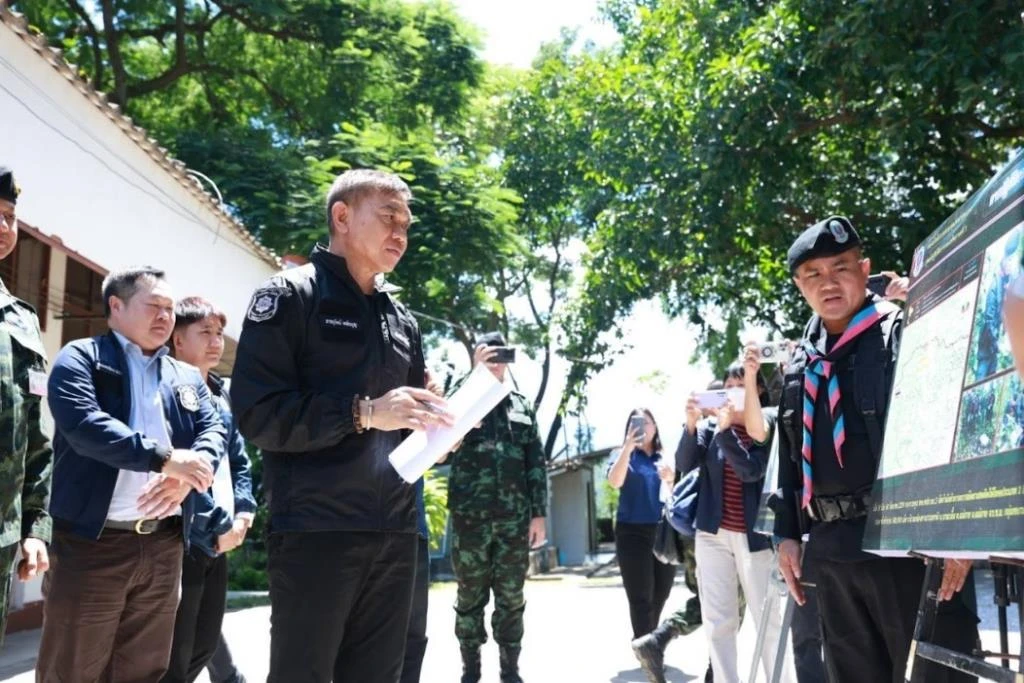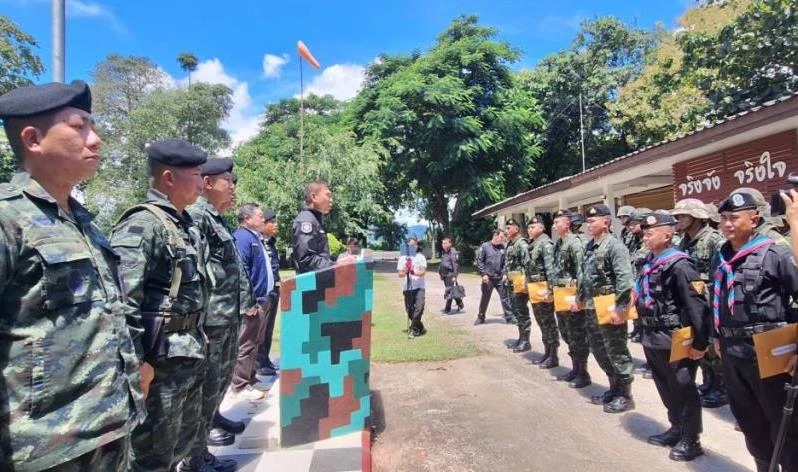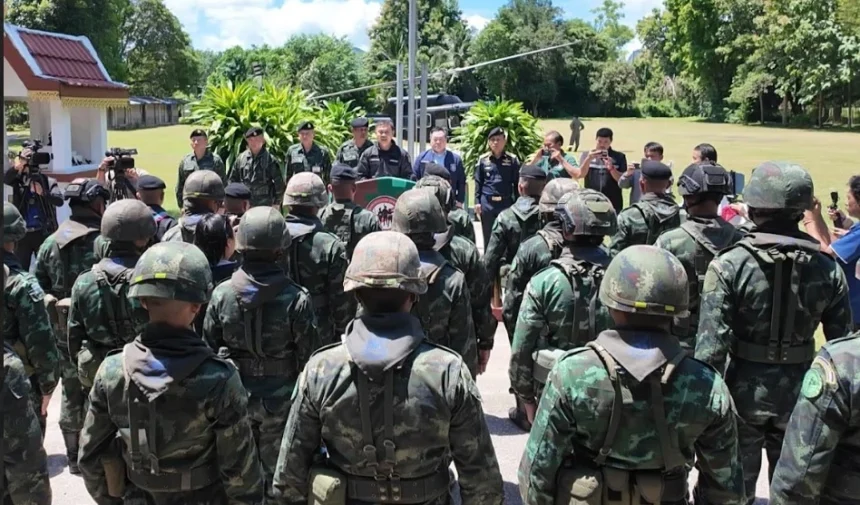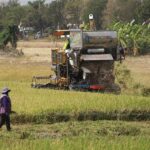CHIANG MAI – The Secretary-General of the Office of the Narcotics Control Board (ONCB) visited northern border areas in Chiang Mai to support frontline officers working to stop drug trafficking in Northern Thailand.
The visit came after 13 recent clashes with drug smugglers, resulting in 21 suspects killed and over 23 million meth tablets seized. Plans are underway to raise the budget for blocking and fighting drugs in border zones from 40 million baht to 63 million baht for the 2026 fiscal year.
On August 19, 2568, at the Padam Command Base in Ban Rong Than, Sri Dong Yen Subdistrict, Chai Prakan District, Chiang Mai, Police Lieutenant General Panurat Lakboon, head of the ONCB, led the inspection.
He was joined by Lt. Gen. Kittipong Chuenjaichon (chief of northern border drug operations), Deputy Secretary-General Apikit Chorojpraset, Lt. Gen. Kaj Gorree (deputy chief, northern drug suppression), Thanwa Putpong (Director, ONCB Region 5), Col. Meechai Nilsat (deputy commander, Pha Muang Force), and Ms. Sukanya Yaiwong (acting narcotics specialist, Region 5), among others.

Their goal was to check on and encourage the anti-drug teams following intense conflict along the Chiang Mai and Chiang Rai borders since May 2025. In 13 separate events, authorities took out 21 traffickers, seized 23,544,000 meth pills, 58 kilograms of crystal meth (ice), 20.8 kilograms of raw opium, and more.
Police Lt. Gen. Panurat reported that this year alone, troops confronted drug caravans along the Chiang Mai and Chiang Rai borders at least 10 times since May. Smuggler losses totalled 21. Over 25 million meth tablets were confiscated.
Efforts are also underway to work with Chinese officials, who have ties to Wa and Myanmar groups, to arrest Mr. Weera Muanchada, son-in-law of Col. Chalobo, a leader in the armed Muse group within Wa-controlled territory.
Mr. Weera, wanted in Thailand, is believed to direct the drug shipments from the Wa group into the country. Authorities believe catching him would reduce drug flows. He is linked to border drug runs via Chiang Mai and Chiang Rai, moving product deeper into Thailand. Mr. Weera currently has a 1-million-baht bounty on his head.
The ONCB has requested additional funding for the Northern Border Drug Suppression Unit (NBY35). The annual budget would rise from 40 million to 63 million baht for fiscal 2026 to increase operations along the border and strengthen enforcement.

Chaiyanupap Task Force – 5 Border Clashes
- On June 5, 2568, Cavalry Company 4 and Special Task Force 501 patrolled near Phabong Pass, Ban Pakluai, Mon Pin Subdistrict, Fang District, Chiang Mai. They clashed with traffickers, killing one suspect and seizing 200,000 meth pills, 20.8 kilograms of opium, and a homemade shotgun, which were handed over to the Fang Police for further action.
- On June 13, 2568, Cavalry Company 3 worked with Task Force 501 on a patrol near Khao Hua Nok Pass, Ban Khob Dong, Moo 14, Mon Pin Subdistrict, Fang. They faced 6-8 traffickers, resulting in four deaths and the confiscation of 400,000 meth pills, 360 grams of heroin, 27 ecstasy pills, 12 grams of raw opium, a long handmade shotgun, ammo, and one handgun.
- On June 20, 2568, Cavalry Company 4 and Task Force 501 engaged 6-8 traffickers in Ban Nong Tao, Mon Pin Subdistrict, Fang. Two suspects were killed, 400,000 meth tablets were seized, and a long homemade shotgun was collected.
- On August 2, 2568, Cavalry Company 3 carried out a border patrol near Ban Luang intersection, Moo 5, Mae Ngon Subdistrict, Fang. The patrol encountered 6-8 traffickers, killing five. Officers seized 1,354,000 meth pills, one long homemade shotgun, one handmade handgun, and two mobile phones.
- On August 15, 2568, Cavalry Company 4 worked with Ranger Company 3207 from the 3rd Army Operations Command. Their patrol met 30-40 traffickers along San Phak Wan Road, Ban Nong Tao, Mon Pin Subdistrict, Fang. After one suspect was killed, officers confiscated 4,200,000 meth tablets and a rifle.
Officers continue to step up patrols and enforcement along the northern border in response to ongoing drug trafficking. The increase in budget aims to strengthen border operations, giving frontline staff more resources to combat organized crime.














